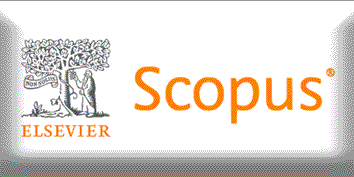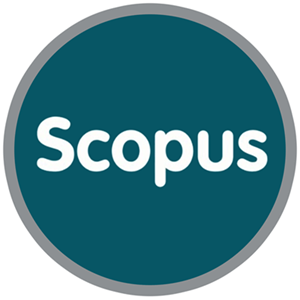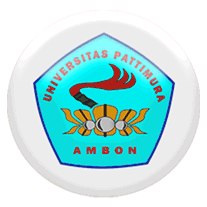DECODING DIGITAL LEARNING: A CART ANALYSIS INSIGHT
Abstract
In today's digital era, online education has become an integral component of the global educational system. However, the quality of providers, mastery of online learning media, and the capability of teachers in delivering content significantly influence students' comprehension. Understanding how these factors impact students is crucial for optimizing online educational experiences. This article examines the effect of provider quality, mastery of online learning media, and teacher's capability in teaching on students' understanding in an online learning environment using Classification and Regression Trees (CART). The study focused on the active students of UIN Maulana Malik Ibrahim Malang, totaling 18,104 based on data from PDDIKTI. Due to the vastness of this population, stratified random sampling was employed. The sample size was determined using the Kock and Hadaya method, resulting in a minimum sample of 271. Each sample in the stratum was taken based on the proportion of the population across 19 departments, with the Department of Psychology having the largest sample size of 20 students and the Department of Library and Information Science the smallest with 4 students. The findings revealed that a teacher's capability has a more profound influence on students' understanding than mastery of online learning media, while provider quality showed no significant impact. To enhance the effectiveness of online learning, it's recommended that educational institutions invest in teacher training focused on effective teaching methodologies and technological utilization, and also ensure the selection of online learning platforms that cater to student needs.
Downloads
References
D. Nada and B. Bannan-Ritland, Online Learning: Concepts, Strategies, and Applications, Britania Raya: Pearson/Merrill/Prentice Hall, 2005.
E. F. Barkley, T. A. Angelo, P. K. Cross, K. P. Cross and C. H. Major, Collaborative learning techniques: a handbook for college faculty, Spanyol: John Wiley & Sons, 2005.
G. Siemens, "Connectivism: A Learning Theory for the Digital Age," International Journal of Instructional Technology and Distance Learning, vol. 2, no. 1, pp. 3-10, 2005.
D. R. Garrison and M. Cleveland-Innes, "Facilitating Cognitive Presence in Online Learning: Interaction Is Not Enough," American Journal of Distance Education, vol. 19, no. 3, pp. 133-148, 2005.
C. J. Bonk and C. R. Graham, Handbook of Blended Learning: Global Perspectives, Local Designs, San Francisco: Pfeiffer, 2006.
R. M. Felder and L. K. Silverman, "Learning and teaching styles in engineering education," Engineering Education, vol. 78, no. 7, pp. 674-681, 1988.
L. S. Shulman, "Those who understand: Knowledge growth in teaching," Educational Researcher, vol. 15, no. 2, pp. 4-14, 1986.
L. Breimen, J. H. Friedman, R. A. Olshen and C. J. Stone, Classification and Regression Trees, Florida: Chapman & Hall, 1984.
T. Anderson, L. Rourke, D. R. Garrison and W. Archer, "Assessing teaching presence in a computer conferencing context," Journal of Asynchronous Learning Networks, vol. 5, no. 2, pp. 1-17, 2001.
J.-P. Li, N. Mirza, B. Harat and D. Xiong, "Technological Forecasting and Social Change," Machine learning and credit ratings prediction in the age of fourth industrial revolution, vol. 161, p. 120309, 2020.
L. V. Zhihan, L. Qiao and A. Singh, "Advanced Machine Learning on Cognitive Computing for Human Behavior Analysis," IEEE Transactions on Computational Social Systems, vol. 8, no. 5, pp. 1194-1202, 2021.
N. Galambos, "Data Mining Methods: Application for Institutional Research," 2014. [Online]. Available: https://www.stonybrook.edu/commcms/irpe/reports/_presentations/DataMining_Galambos_2014_11_05.pdf. [Accessed 9 September 2023].
Minitab, Introducing Minitab, Sydney: Minitab, 2019.
H. M. Claire, Teaching Online: A Guide to Theory, Research, and Practice, Baltimore: Johns Hopkins University Press, 2015.
P. Isaias, D. G. Sampson and D. Ifenthaler, Online learning and teaching in higher education, Cham: Springer Nature Switzerland, 2020.
T. Stavredes, Effective Online Teaching: Foundations and Strategies for Student Success, San Francisco: Jossey-Bass, 2011.
J. V. Boettcher and R.-M. Conrad, The Online Teaching Survival Guide: Simple and Practical Pedagogical Tips, San Francisco: Jossey-Bass, 2021.
N. E. Noviana and M. R. Solichin, "Pengaruh Penggunaan Media Pembelajaran Online (whatsapp dan Zoom) Terhadap Prestasi Belajar Siswa Pada Masa Pandemi Covid-19," Jurnal Pendidikan Ekonomi (JUPE), vol. 9, no. 2, pp. 48-76, 2021.
C. V. Mazzanti and E. Karsli-Calamak, "“Kind of interrupting”: teachers of young children understanding mathematics learning and linguistic diversity," International Journal of Qualitative Studies in Education, vol. 35, no. 2, pp. 210-227, 2022.
R. Innayah, "Pengaruh Media Pembelajaran Online, Motivasi Belajar dan Kompetensi Dosen Terhadap Kualitas Pembelajaran," Promosi: Jurnal Program Studi Pendidikan Ekonomi, vol. 8, no. 2, pp. 38-47, 2020.
T. L. Lindell, "Exploring teachers’ increased knowledge of the potential of mobile phone use: pilot study reducing the difference between students’ and teachers’ ideas," Education and Information Technologies, vol. 25, pp. 3759-3778, 2020.
T. Kokkinos and P. Gakis, "Student teachers’ differentiated teaching practices for high-achieving students," Journal of Further and Higher Education, vol. 45, no. 7, pp. 916-931, 2020.
Ş. Orakcı, "Exploring the relationships between cognitive flexibility, learner autonomy, and reflective thinking," Thinking Skills and Creativity, vol. 41, p. 100838, 2021.
L. Jager, E. Denessen, A. H. Cillessen and P. C. Meijer, "Sixty seconds about each student–studying qualitative and quantitative differences in teachers’ knowledge and perceptions of their students," Social Psychology of Education, vol. 24, pp. 1-35, 2021.
H.-C. Wei and C. Chou, "Online learning performance and satisfaction: do perceptions and readiness matter?," Distance Education, vol. 41, no. 1, pp. 48-69, 2020.
S. Nuraisyah, R. D. Harahap and D. A. Harahap, "Analysis of Internet Media Use of Student Biology Learning Interest During COVID-19," JPPIPA: Jurnal Penelitian Pendidikan IPA, vol. 7, no. 2, pp. 213-217, 2021.
F. Mustafa, "Factors influencing online learning of university students under the covid-19 pandemic," International Journal of Educational Research and Innovation, vol. 15, pp. 342-359, 2021.
Copyright (c) 2023 Sri Harini, Angga Dwi Mulyanto, Fachrur Rozi

This work is licensed under a Creative Commons Attribution-ShareAlike 4.0 International License.
Authors who publish with this Journal agree to the following terms:
- Author retain copyright and grant the journal right of first publication with the work simultaneously licensed under a creative commons attribution license that allow others to share the work within an acknowledgement of the work’s authorship and initial publication of this journal.
- Authors are able to enter into separate, additional contractual arrangement for the non-exclusive distribution of the journal’s published version of the work (e.g. acknowledgement of its initial publication in this journal).
- Authors are permitted and encouraged to post their work online (e.g. in institutional repositories or on their websites) prior to and during the submission process, as it can lead to productive exchanges, as well as earlier and greater citation of published works.






1.gif)



